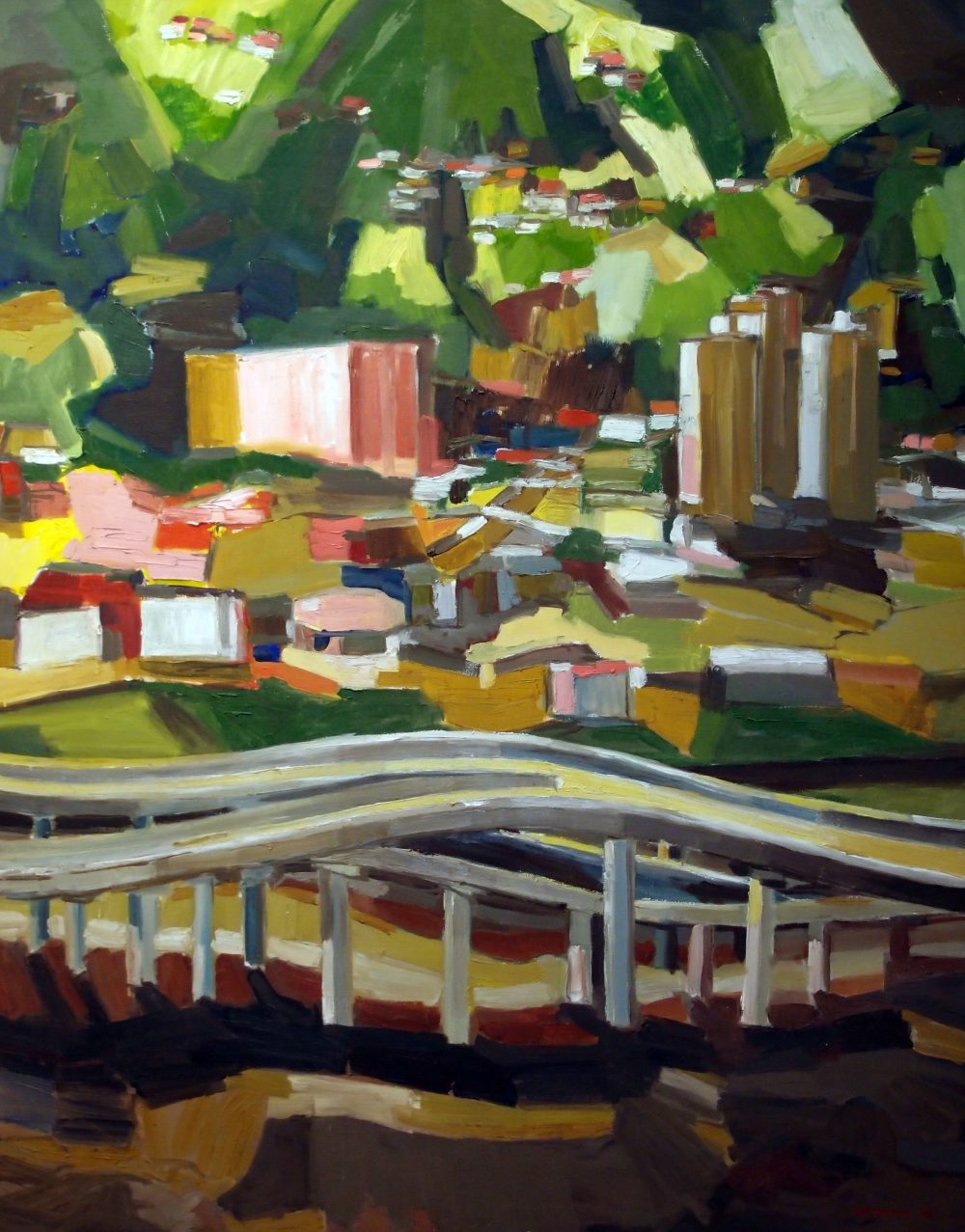Cityscape by Richard Helzer
- Title: Cityscape
- Artist: Richard Helzer
- Medium: Oil on canvas
- Size: 69"h x 54"w
- Added to collection: 2005
- Donor: Gift of Richard Helzer family
- Campus: Rock Creek
- Location: B7/2 Hallway gallery
Richard Helzer is fondly remembered at Rock Creek campus as the founder of the Art department and an inspiring and generous colleague and teacher. The Helzer Gallery at Rock Creek was posthumously named in his honor. Although remembered primarily a sculptor who attended PSU and apprenticed with sculptor Frederick Littman (whose work is also in the Rock Creek collection), Helzer was also a very accomplished painter. This impressive painting from 1966 was made in his senior year as a fine arts undergraduate at PSU.
The view is a cityscape of the Portland west hills and I-5 on-ramps. The paint is applied liberally, almost sculpturally, in thick slabs of vivid, expressionist color. Helzer has deconstructed the city into chunky blocks and wedges of shimmering interlocking emerald green and salmon pink. The rhythms of the buildings find a counterpoint in the undulating curves of the elevated on-ramps and their shadows. The cropping of the hills and absence of horizon or sky creates a dramatic sense of spatial compression.
The painting was Helzer's response to a final assignment to make a view of the city in his senior painting seminar. He was stymied about how to go about this until one afternoon he was driving his VW beetle east across the Ross Island Bridge and looked at the view of the west hills in his jiggling rearview mirror. Suddenly he knew how to paint the city! He made a quick U turn and went back to his studio at PSU, which he shared with some painting majors who owed him a favor, as he had built many stretchers and frames for them over the year. They let him use as much of their canvas and paint as he needed for his painting, so he made his painting as large as he could and used as much paint as he could. He said he painted all night long from that fleeting memory of the city cropped in his rearview mirror. Helzer liked to add that in the critique his teacher applauded him for his use of "subtle, refracted, contre-jour lighting," something that showed he had studied his subject carefully long and hard. Helzer said nothing about the jiggly mirror.

